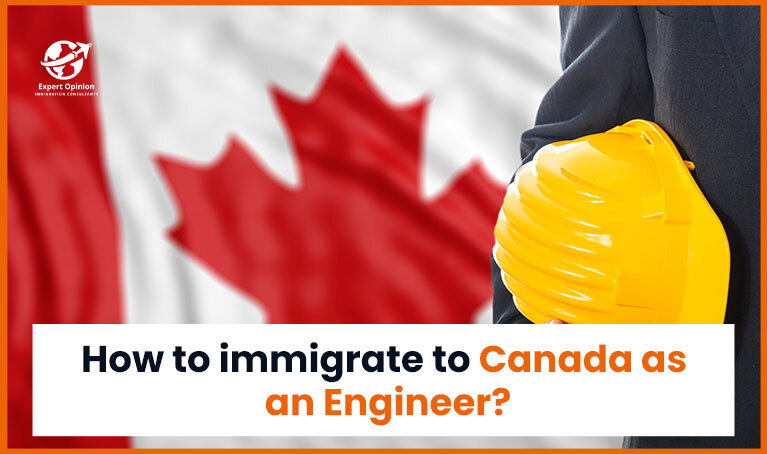Engineers are skilled workers. They look for good jobs and new homes. Many engineers from other countries want to move to Canada. Canada has many job opportunities for engineers. The quality of life in Canada is high. Canada is a diverse and welcoming country. Engineers find that exciting.
This guide will help you understand How to immigrate to Canada as an engineer. We’ll talk about different ways you can become a permanent resident, find good engineering jobs, and enjoy all the good things Canada has to offer.
Table of Contents
ToggleImmigration Options for Engineers
Here is information about the different Canadian immigration programs for skilled workers like engineers. Canada has many immigration choices for people with skills. We will look at the most important options for engineers.
Direct Permanent Residence Paths
These programs allow you to apply directly for permanent residence without first securing a job offer in Canada.
- Express Entry (EE): The main way for skilled workers to immigrate to Canada is through Express Entry. To become a permanent resident as an engineer via Express Entry, you create an online profile with details about your work, education, language abilities, and more. The Canadian government gives points for this information. People with the highest scores get invited to apply for permanent residence.
Provincial Nominee Programs (PNPs)
PNPs help with job openings in different parts of Canada. Many provinces want skilled engineers and offer easy ways to move there. They also give extra help. Looking at PNP programs in provinces that need your type of engineering can really help you get in.
- For example, the Alberta Advantage Immigration Program (AAIP) prioritizes engineers in specific fields like petroleum and mining.
Canadian Experience Class (CEC)
The program is for skilled workers with Canadian work experience. It can be a good choice for engineers with past work permits in Canada.
Atlantic Immigration Program (AIP)
The Atlantic Immigration Program helps make it easier for skilled workers to move to Atlantic Canada provinces. These provinces need more workers. The program is not just for engineers, but it could be a good choice for you. It depends on your work experience and if you don’t mind moving to a new place.
Paths that Build Eligibility for Permanent Residence (PR)
Programs give permission to work for some time in Canada. They might also help people become permanent residents. The programs allow people to work temporarily. But they could lead to chances to live permanently in Canada
Temporary Foreign Worker Program (TFWP):
The program lets you work for an employer in Canada who offered you a job. It does not directly lead to permanent residency. However, it can help you get Canadian work experience. This experience can make your future permanent residency application stronger.
International Mobility Program (IMP):
Canada has made deals with other nations. These deals let people come to Canada for short jobs. The program helps with that kind of work here. It is for a little while, not for good
Post-Graduation Work Permit (PGWP):
Getting your degree from a Canadian engineering school can allow you to get the PGWP. This lets you work in Canada. It may also help you become a permanent resident later. The PGWP lets you gain good work experience. This experience can help you stay in Canada.
What Are The Highest Paying Engineering Jobs in Canada?
Here’s a table outlining some of the highest-paying engineering jobs in Canada, along with their corresponding National Occupation Classification (NOC) codes, which are crucial for immigration purposes:
| Engineering Discipline | Job Title | NOC Code | Average Annual Salary (CAD) |
|---|---|---|---|
| Mechanical Engineering | Mechanical Engineer | 21301 | $70,000 – $110,000 |
| Civil Engineering | Civil Engineer | 22300 | $65,000 – $100,000 |
| Electrical Engineering | Electrical Engineer | 22310 | $70,000 – $120,000 |
| Software Engineering | Software engineers and designers | 21231 | $75,000 – $120,000 |
| Chemical Engineering | Chemical Engineer | 21320 | $70,000 – $115,000 |
| Aerospace Engineering | Aerospace Engineer | 21390 | $75,000 – $130,000 |
| Petroleum Engineering | Petroleum Engineer | 21332 | $80,000 – $150,000 |
| Industrial Engineering | Industrial Engineer | 21321 | $65,000 – $110,000 |
| Mining Engineering | Mining Engineer | 21330 | $70,000 – $130,000 |
| Computer Engineering | Computer Engineer | 21311 | $75,000 – $125,000 |
| Metallurgical and Materials Engineering | Metallurgical and materials engineers | 21322 | $70,000 to $120,000 |
| Geological Engineering | Geological engineers | 21331 | $70,000 to $130,000 |
| Other Professional Engineering | 21399 – Other professional engineers | 21399 | $70,000 to $150,000 |
How to Find Engineering Jobs in Canada?
Once you’ve secured your permanent residency, actively pursuing engineering jobs in Canada becomes the next step. Here are some resources:
- Job Boards: Popular websites like Indeed, Glassdoor, and LinkedIn allow you to search for engineering jobs across Canada. These sites make it easy to find open positions.
- Engineering Associations: There are professional groups for engineers in different fields. These associations often have job listings and career help for members. Connecting with them can help your job search.
- Networking: Going to events, conferences, and online groups lets you meet other engineers and potential employers. Networking this way can open up new job opportunities.
- Recruiting Agencies: You could work with agencies that specialize in finding engineering jobs for qualified people. Reputable agencies can assist with your job hunt.
Why Move to Canada as an Engineer?
Beyond the exciting career opportunities, numerous benefits await engineers who choose to immigrate to Canada:
- Good Life Quality: Canada ranks at the top in global lists measuring quality of life. You’ll have excellent healthcare services, a strong education system, and a secure environment to live in.
- Balance Work and Life:: Canadian work culture values balance. People get time for hobbies and family after work.
- Diverse Society: Canada welcomes people from all backgrounds. Newcomers find an inclusive environment here.
- Beautiful Nature: Canada has breathtaking natural views. You can explore towering mountains, clear lakes, lively cities, and pretty towns.
- Stable Economy: Canada has a solid economy. This helps skilled workers like engineers grow their careers and feel financially secure.
- Investment in Infrastructure: The government spends money on building projects. So, there is always a need for engineers in different fields.
- Pathway to Citizenship: People who live in Canada permanently can apply to become citizens. As citizens, they get full political rights and government benefits.
Additional Tips for a Successful Immigration Journey
Here are some expert tips to optimize your immigration process for engineers in Canada:
- Get Help From Experts: It’s wise to talk to immigration lawyers or consultants who focus on engineering jobs. They know a lot about the immigration system and can guide you properly.
- Have Important Papers Ready: Collect all the paperwork you need, like your education certificates, work experience letters, and language test results. Keep them organized.
- Create Your Express Entry Profile Carefully: If applying through Express Entry, fill out your online profile properly. Highlight your education, work experience, language skills, and ability to adjust to a new place. This will help increase your points.
- Look Into Programs In Certain Provinces: Find out about immigration programs run by different provinces. Some programs might process applications faster for engineers like you. Look for programs that match your field of work and lifestyle.
- Get Canadian Work Experience: If possible, try to get a job in Canada through the Temporary Foreign Worker Program. Or, get a Post-Graduation Work Permit after finishing your studies. Any Canadian work experience will help when you apply for permanent residency.
- Improve Your Language Skills: Getting better at English or French (or both) will make it easier to communicate. It will also give you more points when you apply through the Express Entry system.
Conclusion
Moving to Canada as an engineer can open up many doors. Doing the paperwork correctly, using your skills and work history, and getting to know Canada’s diverse culture can lead to a satisfying career. Canada values new ideas, technological growth, and building projects. As an engineer, you can use your knowledge to help Canada grow and build a successful future there.
You may also like:
- How to immigrate to Canada as a doctor.
- How to immigrate to Canada as a dentist.
- How to immigrate to Canada as a nurse.
- How to Immigrate to Canada Without a Job Offer.
Frequently Asked Questions
How to get licensed in Canada as a foreign-trained engineer:
Are you a foreign-trained engineer? To get a license in Canada, follow these steps. First, work with the engineering group that controls your province or territory. They will look at your past training. You may need work experience in Canada, too. Be ready to pass exams and show you can speak English or French well. Send in your application along with proof of your training and the required fees. After getting licensed, take classes to keep learning. Finally, start looking for engineering jobs in Canada!
How much money do engineers make in Canada?
Engineers earn different pay in Canada. The common pay is between $60,000 and $120,000 per year. Things like experience, education, location, industry, and job make the pay different. Senior engineers or those with special skills and experience often get paid more. Sometimes over $150,000 per year. You should look at job openings and industry rules for the right pay in your area.







